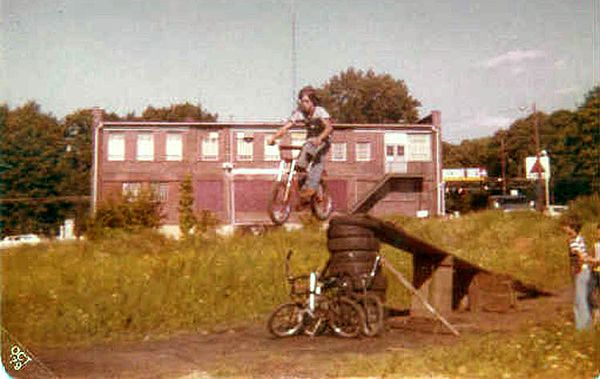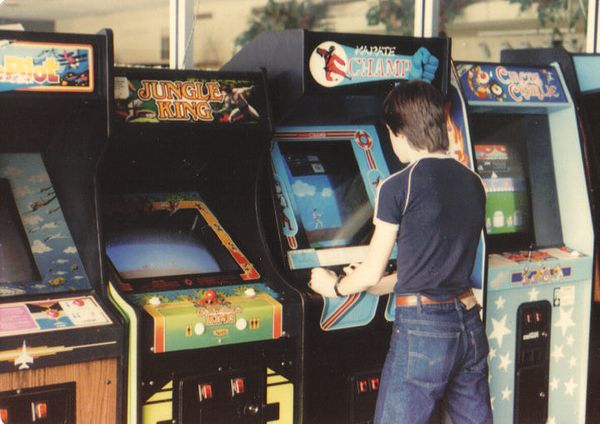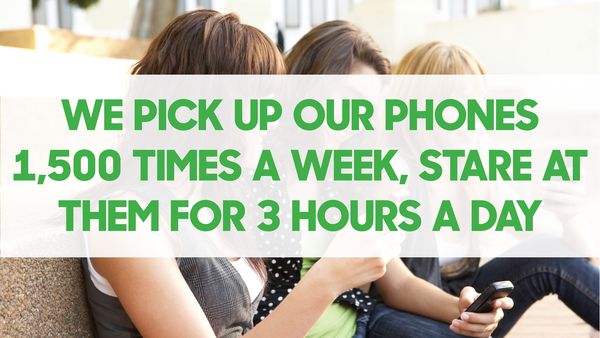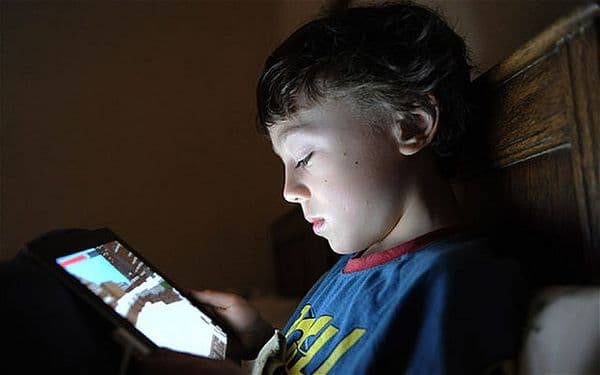Gen X vs Gen Z
I had another argument with my 9 year old son today. It’s becoming a regular occurrence in our house, one that I sense parents all over the world are struggling with more and more. I also see the same path ahead for my younger 6 year old daughter, the symptoms are beginning to show. My sister calls it “Screen Time” and most parents I know are locked into a war of access and denial of said “Screen Time” with their children.
Now it’s easy for me to denounce all the various forms of “screen time” as bad and evil and force the kids outside to get some fresh air and play marbles in the mud, however I’m coming to the realization that it’s a lot more complex and as a father I need to find better strategies for coping with this trauma.
 US and European adults own on average 3-5 internet enabled devices each
US and European adults own on average 3-5 internet enabled devices each
Technology is evolving faster than us "oldies" can adapt
It seems that the stuff kids are doing these days is so alien from the kinds of things I was doing when I was a boy. When I was 9, home computers did not even exist. You were lucky if you had a phone in the house and a colour TV, well that was a luxury. I remember playing rather more physical games like Snakes and Ladders, Operation, Buckaroo, Twister, Scalectric and Stock Car Smashup. I spent hours building model kits of American cars that I would obsessively collect. Ah the Nostalgia;-) I was the proud local marble champion in my square and had a fine collection of glass marbles in many sizes and with intricate internal patterning and sparkle. I was quite the hustler.
In the late 70’s BMX bikes and skateboards were all the craze and like many other young boys I was “addicted” to the thrill of learning stunts and impressing my friends. At least you don’t get bruises and broken bones after a 2 hour iPad session. The stress I must have caused my parents.
 I always wanted to be Evel Knievel, he was every kid's hero in the 70's
I always wanted to be Evel Knievel, he was every kid's hero in the 70's
I’m happy to say I had a healthy, active and very social childhood and a childhood that I think was not that different to the ones my parents had, maybe even their parents too. Yes we had a little bit more money but the basic activities that kept us busy were the same.
So what changed? The 80’s brought the birth of home computers and games consoles. It was a revolution that changed everything. I was a little older by now and getting heavily into music, girls and learning to play the guitar but for my younger brother this revolution hit him head on. Days would literally pass when my brother would not appear from his room. You were lucky if you saw him pop out for a toilet break or a quick bite to eat then straight back in again. Mostly you would hear the occasional "fuck" or "shit" screaming from his bedroom. The family would sit downstairs with worried faces hoping that he would come down before my mother and father lost their temper and the whole place would kick off.
Things have changed alright, kids got addicted to computer games and the older generation was left wondering what had gone wrong. It became very clear that children were doing stuff that was very different from what their parents had done and it was starting to cause an undercurrent of tension that bubbled away, exploding every now and then like an active volcano.
 The 80's saw an explosion of arcade and home console gaming
The 80's saw an explosion of arcade and home console gaming
So why do I as a parent think "Screen Time" is bad?
I guess the main reason is because I feel it steals our children from what we "oldies" consider to be the real world. It takes them into an unknown place where parents are not allowed to follow. It connects our children to thousands of "potentially" bad people all over the world with evil intentions. It expands the network of our children to 1000 times the size of my network as a 46 year old. That said I know it's not all bad and many of the games have been proven to develop coordination, social skills and language.
The thing that blows my mind though is the power and reach of the internet and social media, it's incomprehensible to a father and mother who were born in the 60's. I'm worried that I'm losing the attention of my children as they transform into iPad zombies who care about nothing else but that damn screen time.
 Time to stop now son! Hey it's time to stop! Did you hear me, I said it's time to STOP!!!
Time to stop now son! Hey it's time to stop! Did you hear me, I said it's time to STOP!!!
All roads lead back to "Screen Time"
After one lengthy Clash of Clans session, I suggested to my son that he stopped playing and listened to music. For a moment in my mind I was thinking that he would put a record on, or listen to a tape but what he did was plug his headphones into the iPad opened up Youtube and starting watching music videos. Different content - same screen time! Similar scenario for basic phone calls as it's all too easy to check game status once the iPhone is in the hand after a call. Even the call itself is usually a facetime call with his friends.
You name it, many of the activities I had as a kid can now be done on an iPad. Watching TV, listening to music, talking on the phone, reading books, playing cards, chess, car racing, painting, doing homework, writing love letters to girls, the list goes on and on. I have to say it's quite incredible the fundamental shift we have gone through in just a couple of generations.
 The digital revolution is radically changing the way we behave
The digital revolution is radically changing the way we behave
Designing for the family social dynamic
So what can be done, how do we address these tensions or do we accept it as normal parent / children generational differences?
Well firstly I think this particular issue is a little more extreme than the generational differences of the past. The advances in technology have fundamentally changed the way our children behave, and how we as parents have adapted. I'm not sure I'm ever going to be totally comfortable with this shift in social behaviour.
I do have some ideas though on what could improve the situation. Take the game companies for instance. I wonder how much they consider the family dynamic when designing games? Controlling access to screen time is a challenging situation for millions of parents all over the world and the game companies could consider adopting user centred design methods to ensure that the screen time which kids crave, could also be a positive experience for parents. I can see a huge market for games that help parents to end the screen time session without tears. Games that slowly bring the child out of the virtual world and back into the real world softly and without the need for parents to lose their cool and patience.
Take the idea of a "game diary" for example that kids could do at the end of the gaming session to wrap up their progress in a less anxious way. Maybe it's an "action reply video" of how well they did in that particular session that they can show to their parents proudly. Maybe it's about games that are designed to be played in 30 mins slots so there is a natural end to help parents control the situation.
Overall I think the game companies could really win parents over if they just started to consider the social dynamic of the families that these gaming kids belong to, and how their games could be better designed to fit into family behaviour and existing social models.
I'm not talking about e-learning tools either, that's different. I'm taking about features within the classic games like Clash of Clans and Growtopia that help parents get their kids off the game when game time is over (as defined by the parent). Games that are aware of the parents needs as well as the kids needs and games that are sensitive to the family social dynamic just like any other well designed object or service that functions in an environment made up of diverse types of people with different drivers and needs. It's simply just good user centred design.
So all you game companies out there, here's a tip - I know for sure I would be a super happy parent if I could fill my sons iPad with games that are designed with player and parent in mind. I can also guarantee that there are millions of parents just like me who were born in the 60's and have kids that are now reaching their early teen years that would feel the same.
Sounds like a huge business opportunity if you ask me;-)
- Anton SchubertPrincipal Consultant / Design Strategist

